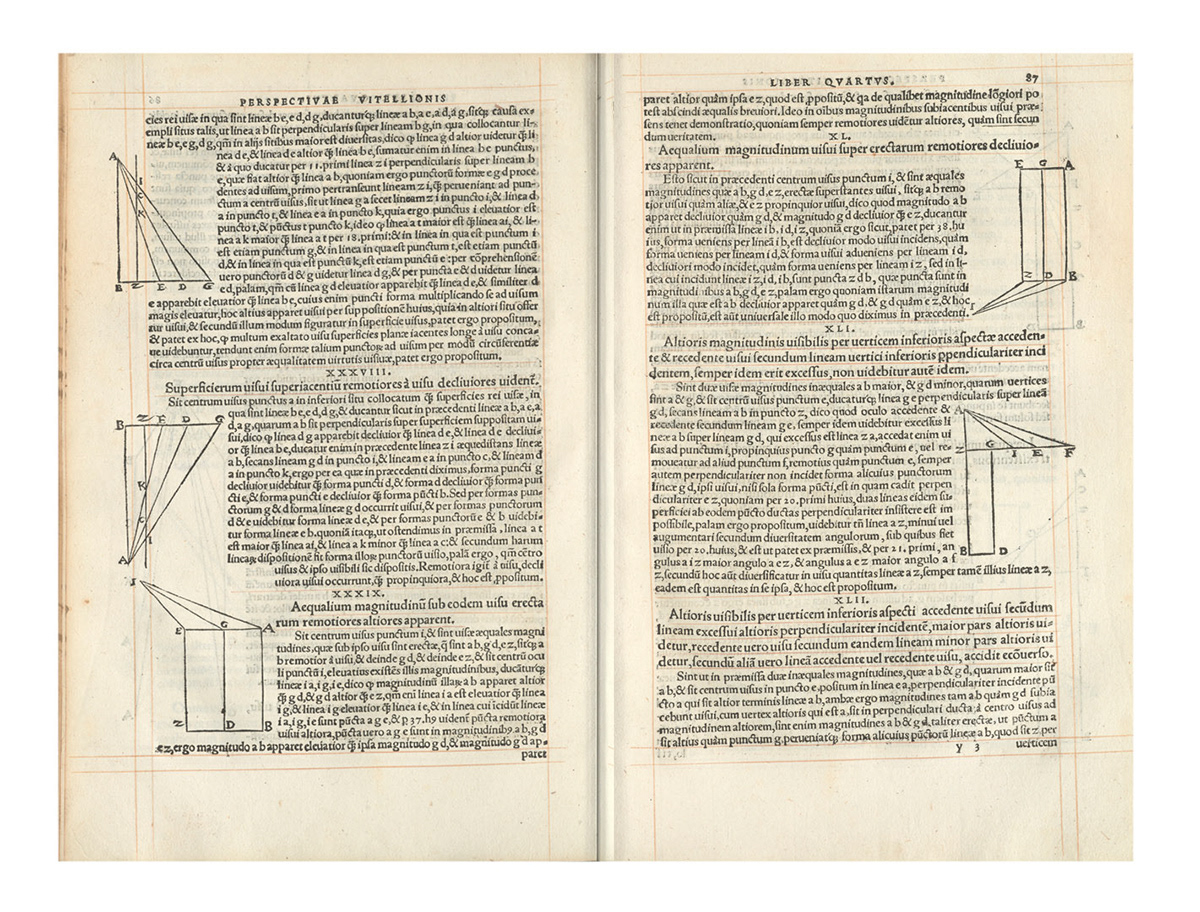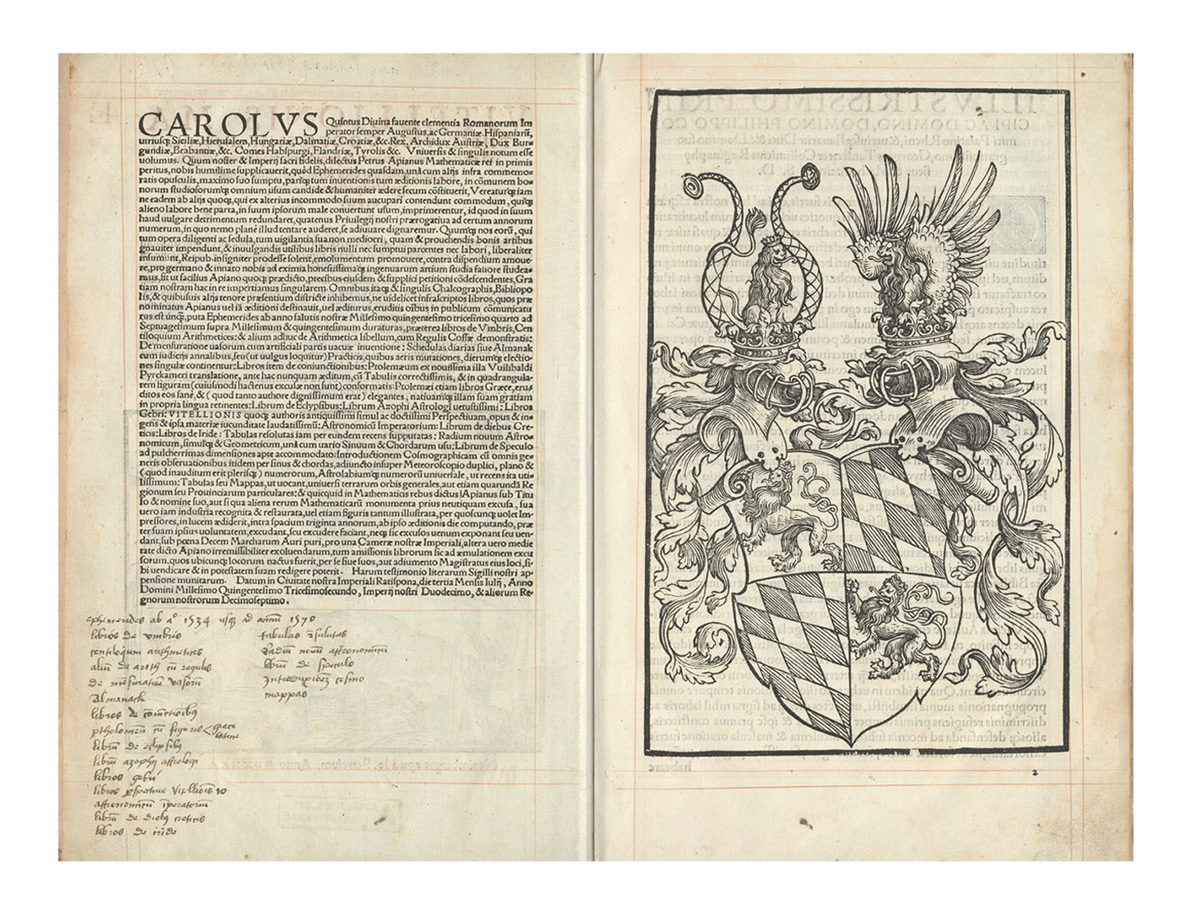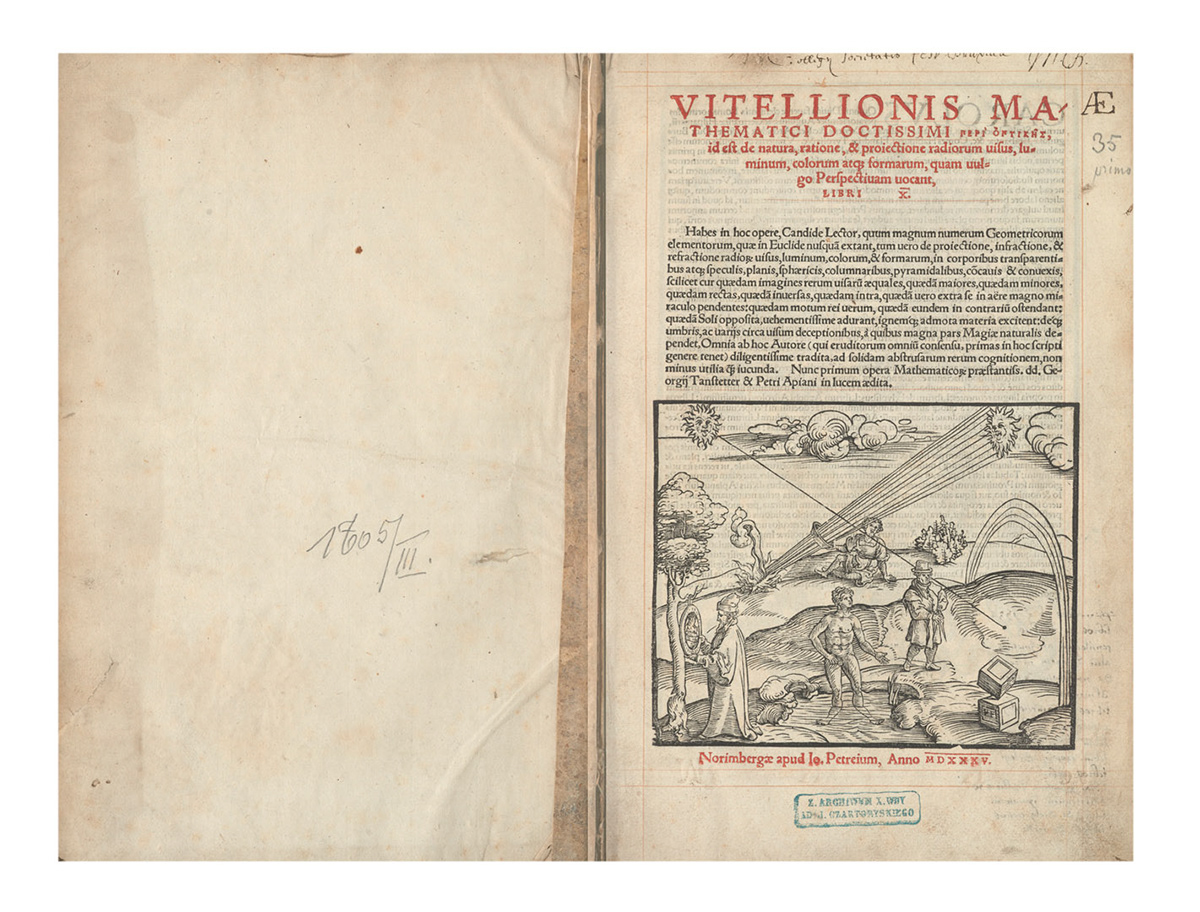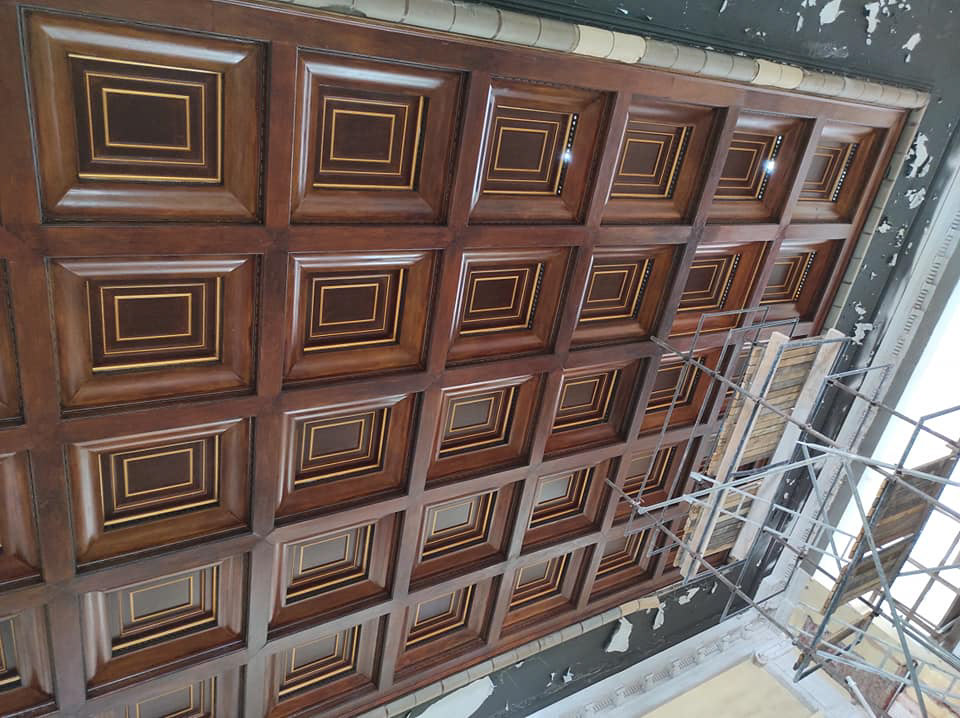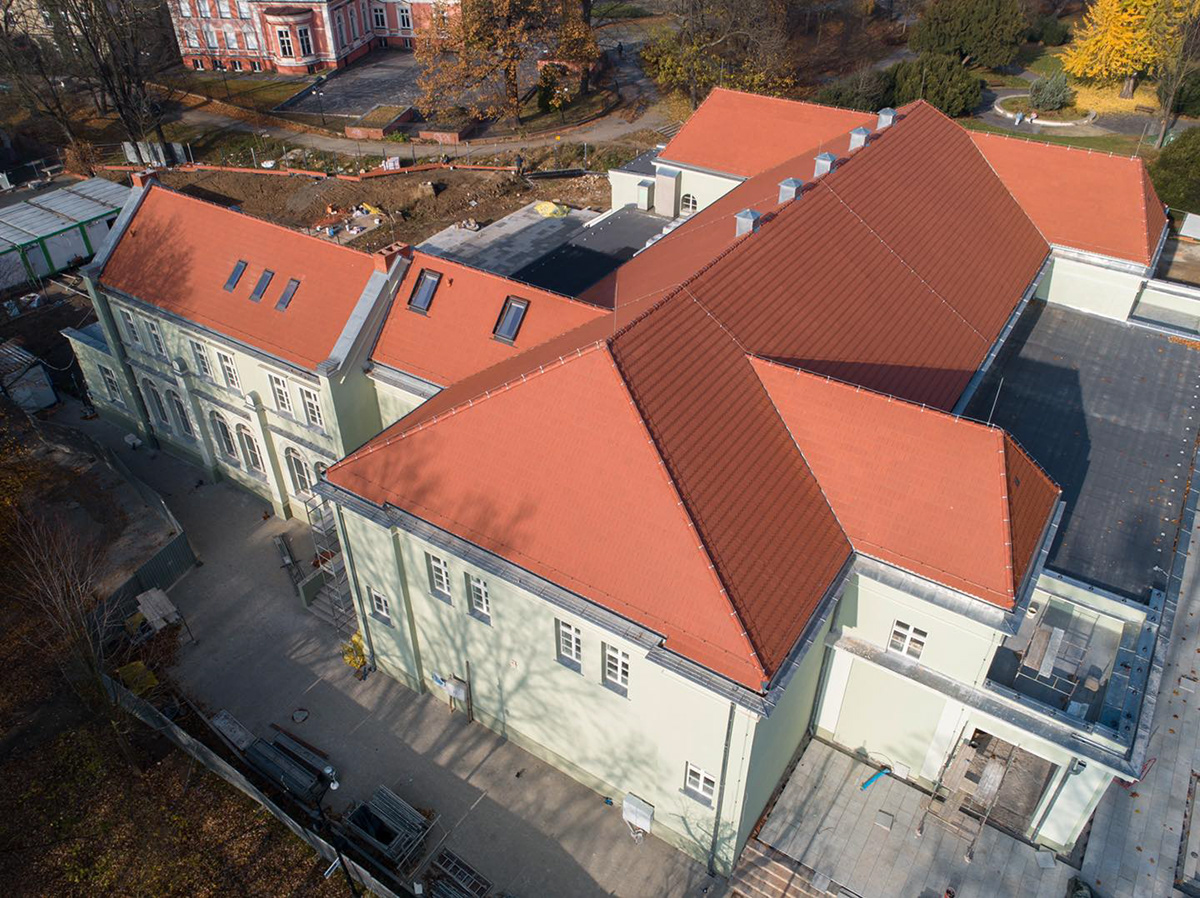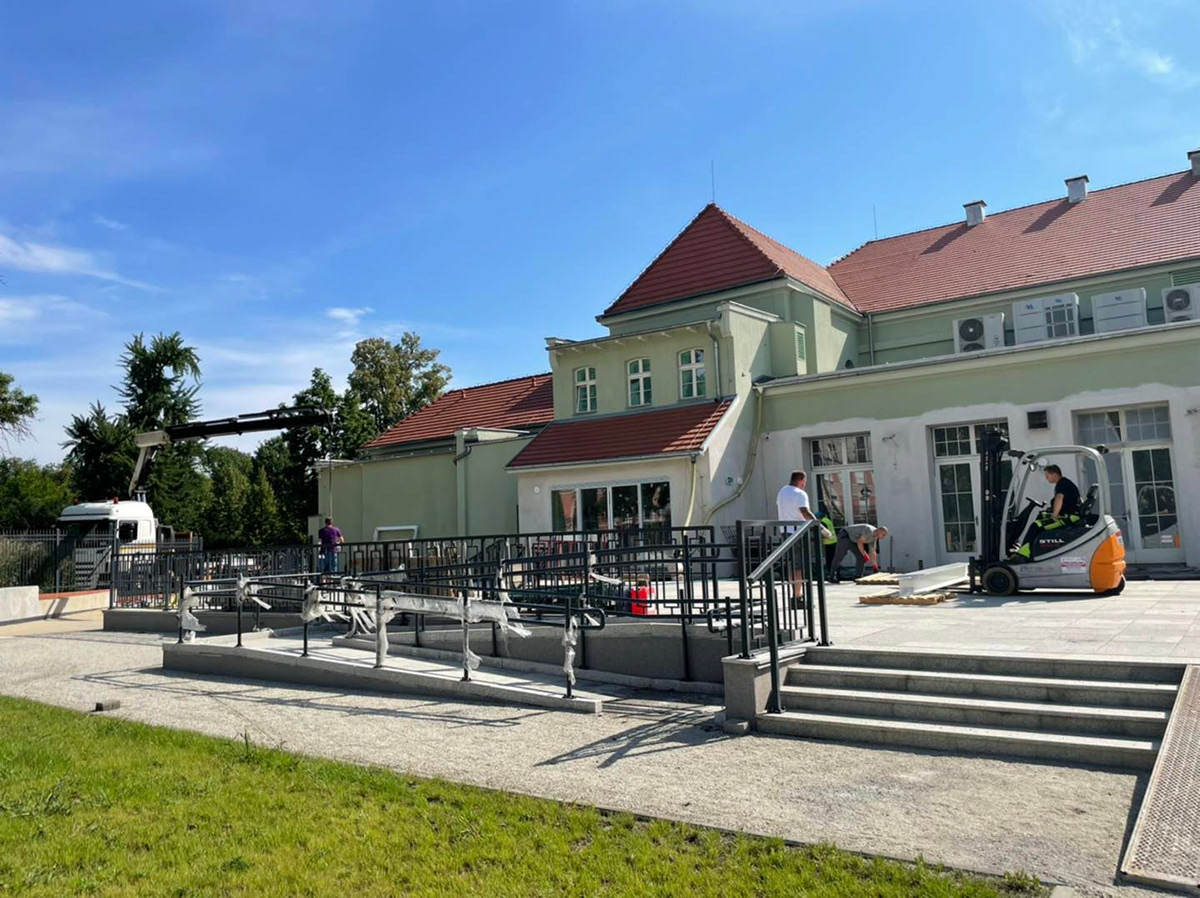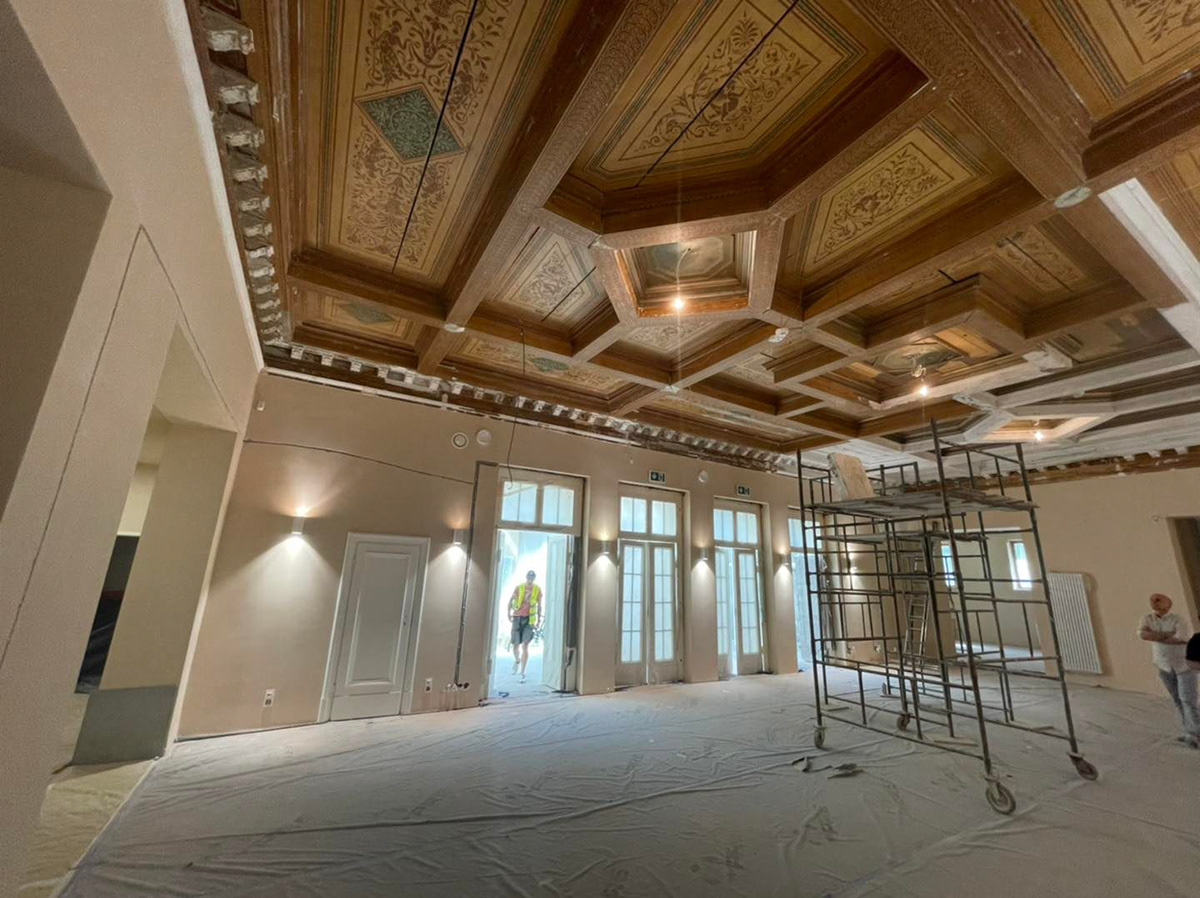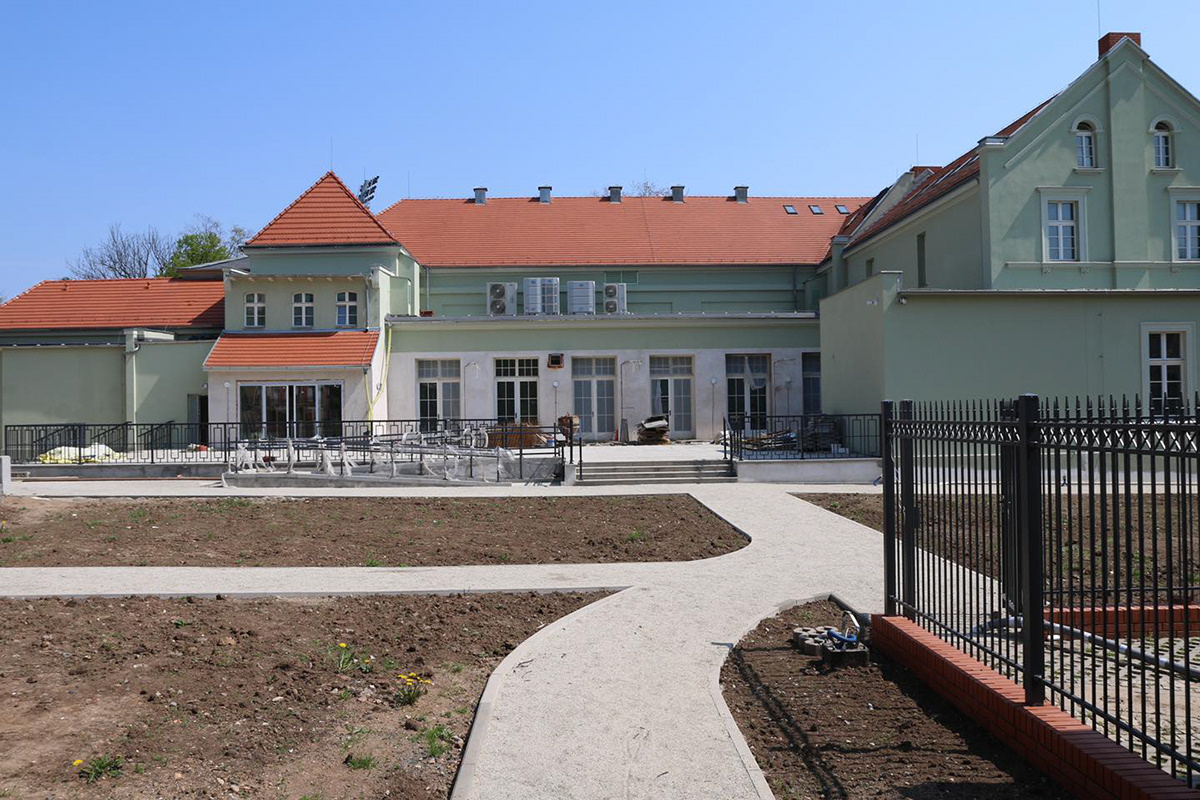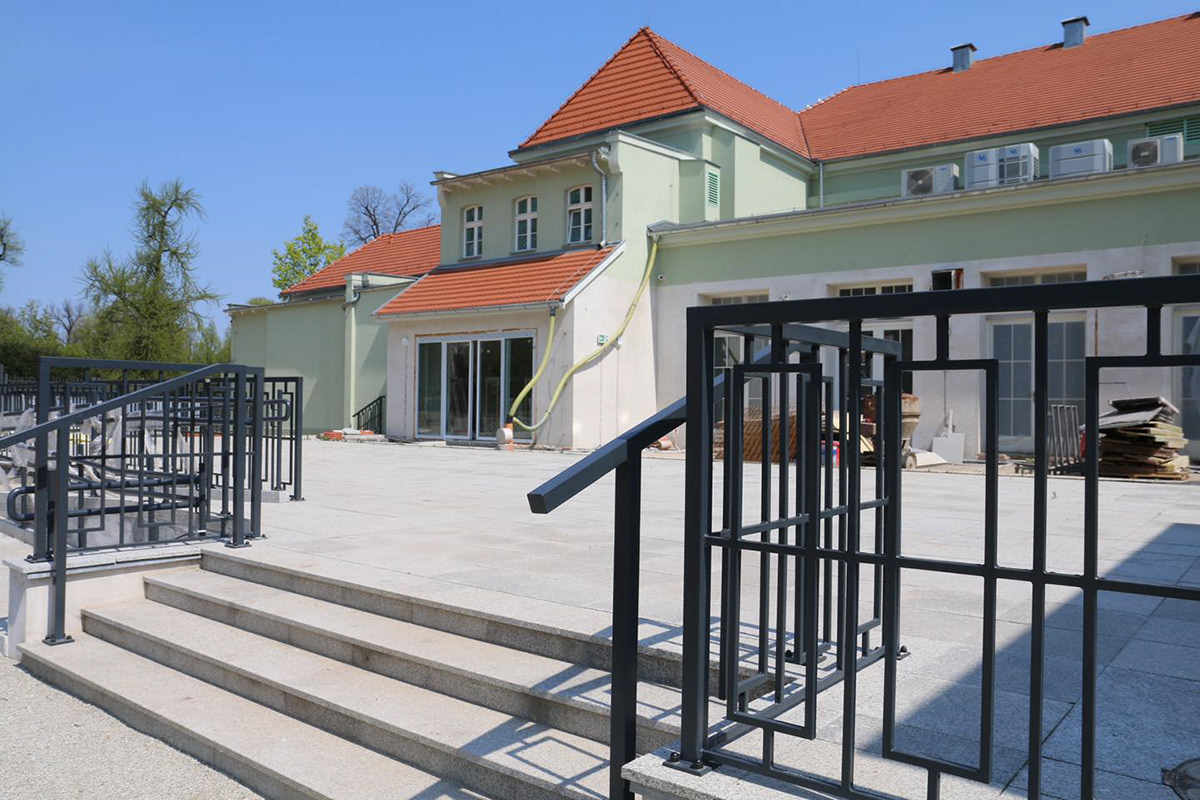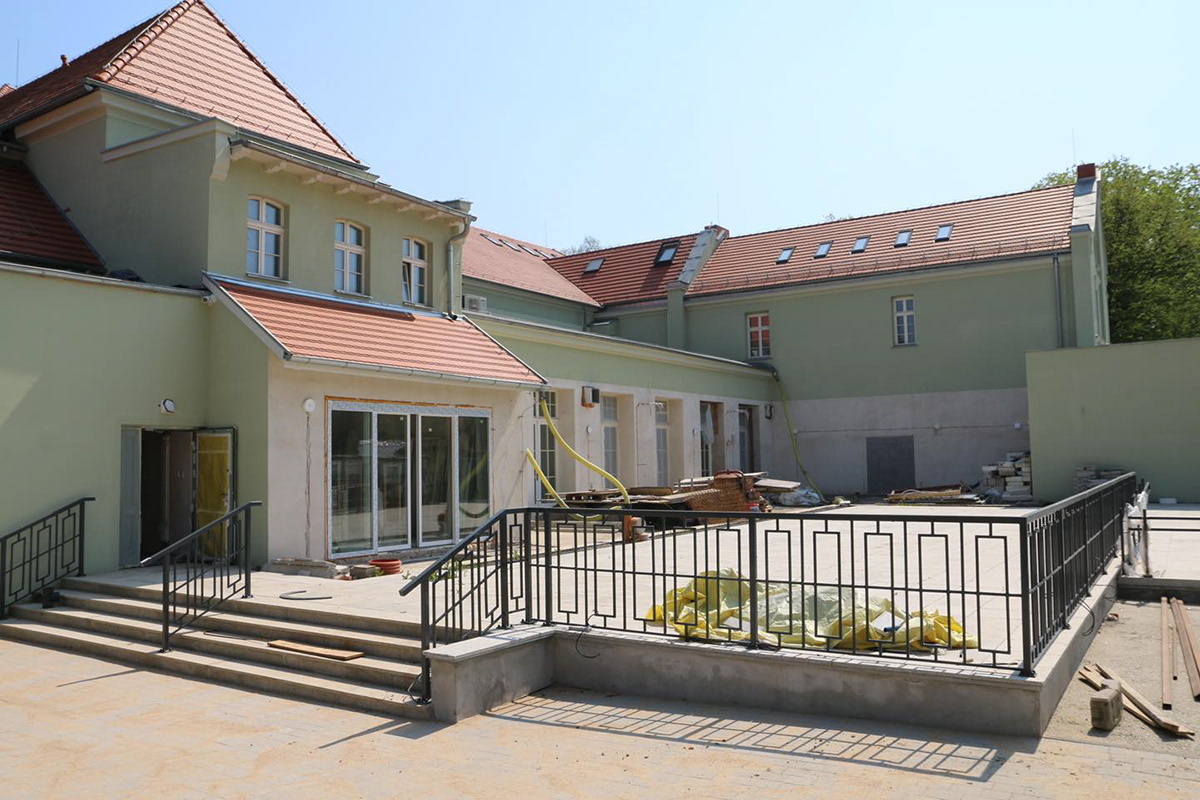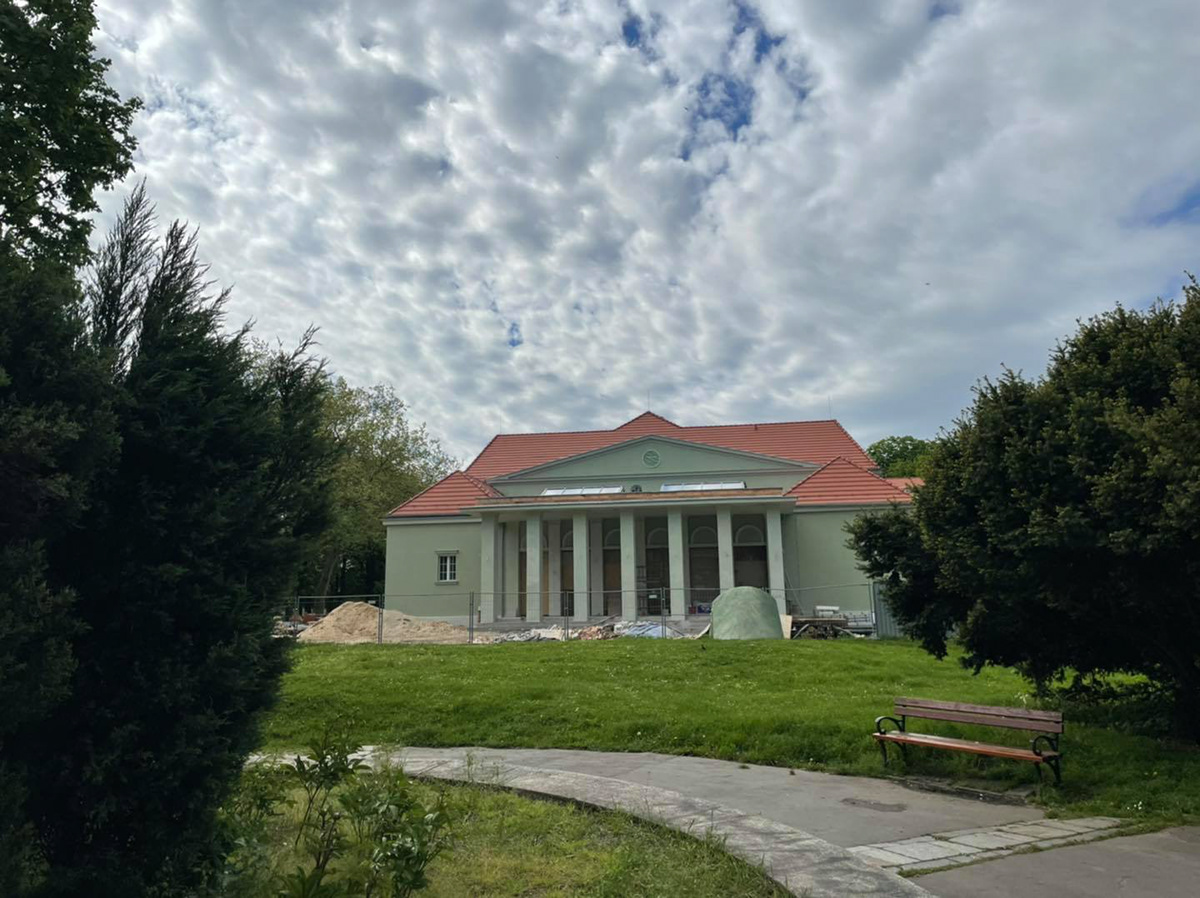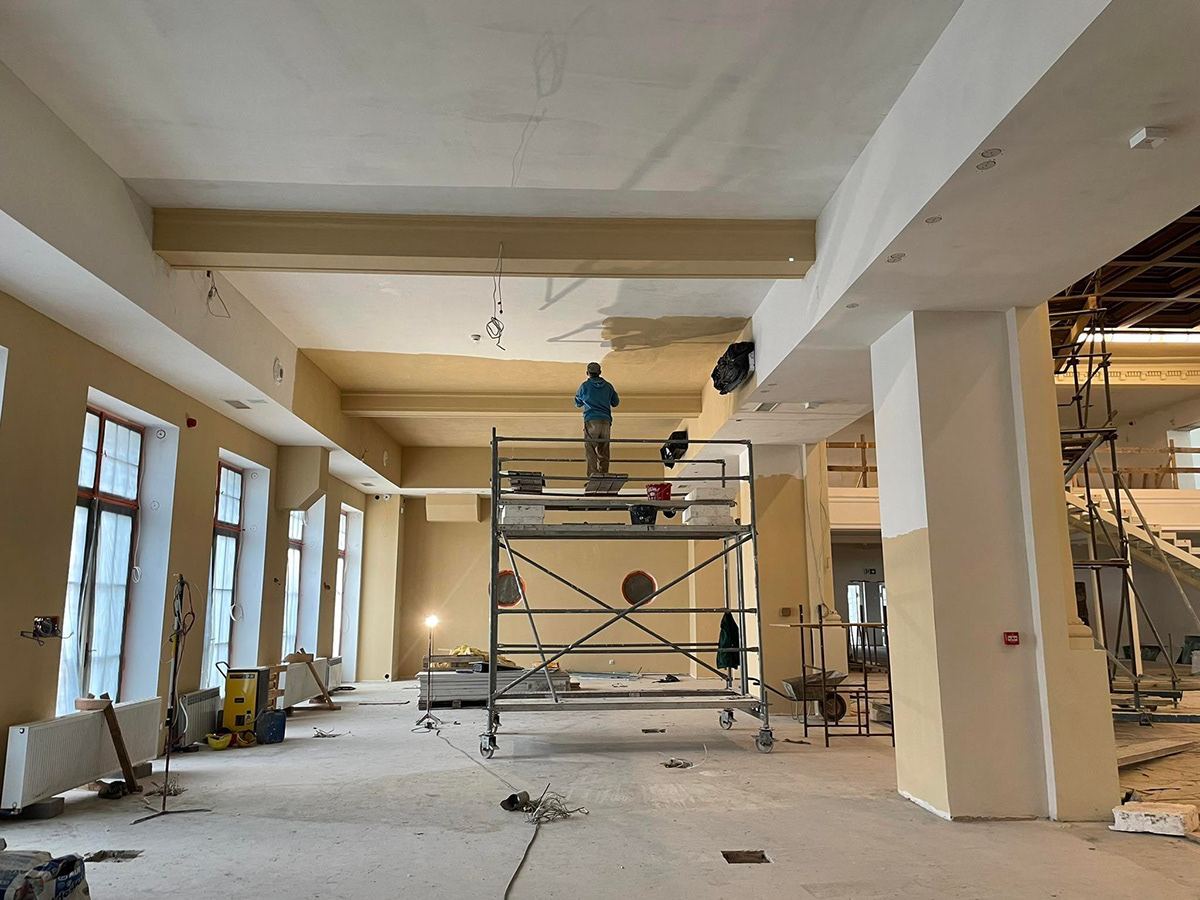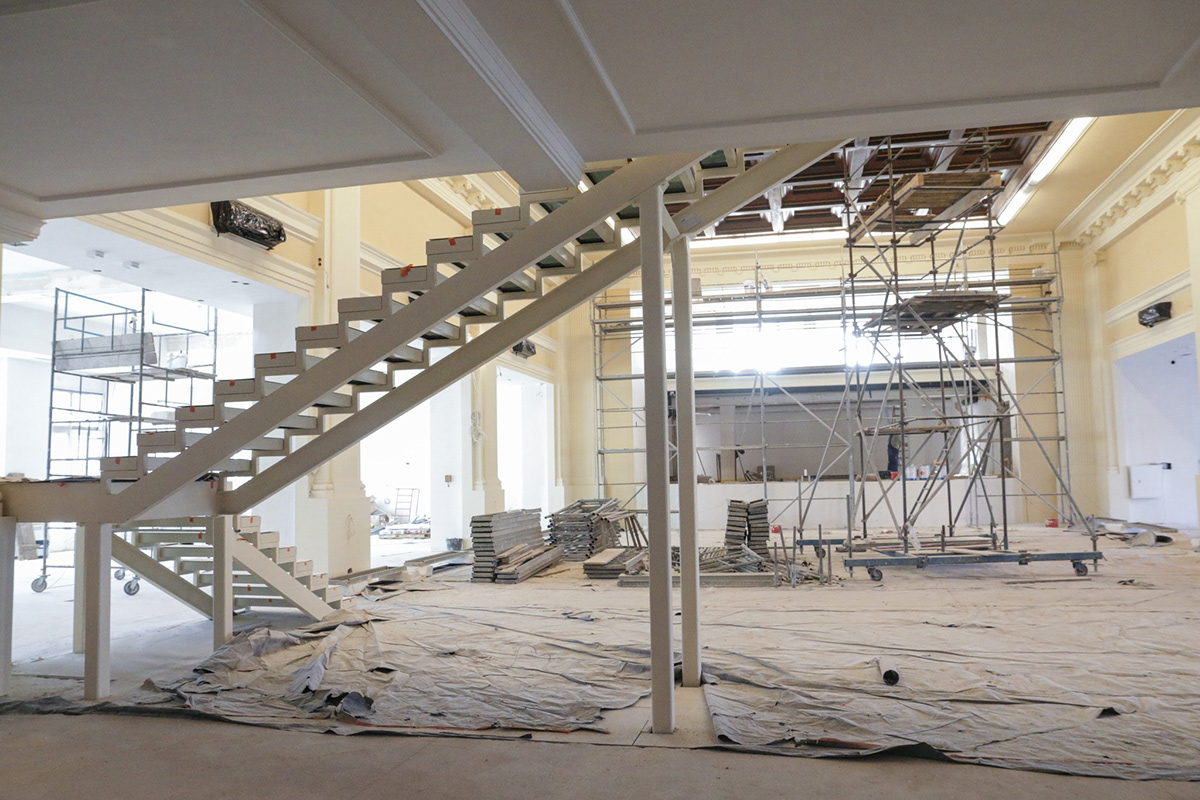
History
The story of Witelon: Witelon is the first Polish scientist. He was born in Legnica around the year 1230. He was the son of a Polish woman from a knightly family and a colonist from Thuringia. Physicist, mathematician and philosopher. Recognized as the founder of optics and the psychology of perception. After 1268, he wrote Vitellionis Mathematicii Doctissimi Peri Optikīs id est de natura, ratione et proiectione radiorum visus, luminum, colorum atque formarum quam vulgo Perspectivam vocant Libri X.
Ten Books of Witelon – Mathematician, Great Scientist of Optics, about the nature, cause and sight radius, light, colors and shapes, commonly called Perspective.
Witelon had very progressive views on the anatomy of the eye and the physiology of vision. He is considered as the creator of the foundations of psychological, psychiatric and psychopathological knowledge. Apart from the physical issues of optics, in which he followed the views of the Arab scientist Alhazen and Robert Grosseteste from Oxford, he also considered, for example, rectilinear propagation of light, its reflection, scattering, refraction, light meteorological phenomena, and also analyzed the psychological aspect of perception. In his work on optics, as well as in his earlier treatise Tractatus de primaria causa poenitentiae et de natura daemonum (“Treatise on the main cause of repentance and on the nature of demons”) from 1268, he indicated, among other things, that visual illusions are the result of observation conditions and ideas as well as the way of thinking. He wrote that “the eye receives no information other than light, color and angular size,” and only then the mind “processes impressions with the help of visions taken from experience.”
He saw the causes of visual illusions both in the observation conditions, e.g. poor lighting, and in the previous experiences of an observer. Although Witelon did not deny the existence of demons and even described their nature and behavior in detail, he clearly indicated that the material image of demons may be an illusion that has its own cultural conditions.
Witelon’s other achievements include popularization of the works of ancient scientists and construction of instruments for drawing curves. The date of his death is not confirmed, scientists say that Witelon died between 1280 and 1314.
In the year 1935, the International Astronomical Union named one of the craters on the Moon after Witelon – Vitello.

The Witelon Center is the most modern institution in the Copper Region, combining science, education and elements of culture. The center will be the only place in Poland showing the use of the achievements of the first Polish scientist – Witelon, whose thoughts and works were referred to by Nicolaus Copernicus and Leonardo DaVinci.
The main attraction of the institution are exhibitions and interactive objects referring to Witelon’s teachings, giving an image of the greatness and use of the discoveries of the first Polish scientist under the common idea of ”EYE. Future Perspective. We present his achievements in the field of the use of light, optics, image detection, mathematics and physics in a modern version. At the Witelon Center, we carry out programs, actions, workshops and events in the field of: education and popularization of science, recreation and culture with the participation of and for the benefit of the local community of the Copper Belt, as well as events in Lower Silesia, and in the future nationwide. Out of concern for the quality of life of its inhabitants, Legnica undertakes activities to develop education based on new technologies, aimed at implementing projects for the inhabitants of Legnica and the entire region in the field of: popularization of new technologies, development of science and education, improvement of qualifications of students and people working in the Copper Belt and activities in the field of volunteering. The development of entrepreneurship, modern education and improving the quality of life of Legnica’s inhabitants as well as increasing awareness of investing for future generations of the copper region is an extremely important issue for the city. The Witelon Center combines science with the humanities. When creating and implementing the Program, the Parties emphasize increased care and concern for the quality of life of the local community.
The exclusive scientific patron of the Witelon Center is the Wrocław University of Science and Technology. This excellent technical university will support the Center in the field of exhibitions, scientific activities and the provision of academic facilities. It will act as a scientific council that will set common goals for the qualitative development of Lower Silesia.






